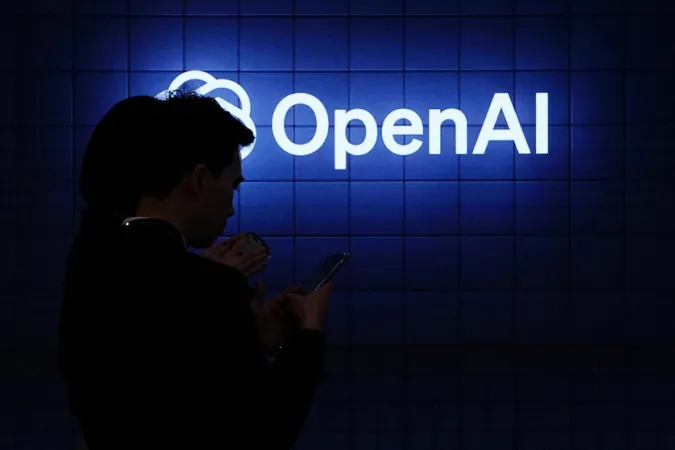
Inside the Turbulent Early Days of OpenAI: Shocking Emails Between Elon Musk and Sam Altman Exposed!
2024-11-15
Author: Yan
Introduction
In a contentious legal battle between Elon Musk, the world’s richest man, and OpenAI, the headline-grabbing company making waves in artificial intelligence, a collection of revealing emails has surfaced. These correspondences, involving Musk, OpenAI CEO Sam Altman, and other key figures, offer a behind-the-scenes look at the organization’s formative years, revealing friction and diverging visions for the future of AI.
Lawsuit Background
The lawsuit stems from Musk's claims that OpenAI is contravening antitrust laws—a sensational allegation that raises eyebrows. More intriguing, however, is Musk's apparent sense of betrayal regarding OpenAI's evolution from a nonprofit research initiative to a commercially-oriented entity, with Altman at the helm.
Concerns About Control
Among the standout revelations is an email from Ilya Sutskever, OpenAI's former chief scientist. Sutskever expressed deep-seated concerns about Musk’s desire for control, writing, 'The current structure provides you with a path where you end up with unilateral absolute control over the AGI. You’ve shown us that absolute control is extremely important to you.' This raises alarm bells about the potential risks posed by an over-centralized decision-making system in the development of artificial general intelligence (AGI).
Management Style Criticism
Sutskever’s emails also reflect apprehensions about Altman's management style: 'We haven’t been able to fully trust your judgments throughout this process,' he penned, questioning the myriad motivations driving Altman's decisions. As Altman has steered OpenAI towards a traditional business model, it seems that profit may have taken precedence over the philosophical underpinnings that initially guided the organization.
Acquisition Considerations
Amid these internal conflicts, discussions in 2017 revealed that OpenAI considered acquiring chipmaker Cerebras, possibly leveraging Tesla's resources to do so. Sutskever noted, 'If we decide to buy Cerebras, my strong sense is that it’ll be done through Tesla.' Despite the potential, this acquisition never materialized for reasons not specified in the emails.
Tesla Subsidiary Proposal
Interestingly, there was a proposal among the co-founders to position OpenAI as a subsidiary of Tesla, using its financial power as a 'cash cow' to fuel AI initiatives. Co-founder Andrej Karpathy believed this strategy could massively enhance Tesla’s market cap while providing critical funding for AI research. However, the idea fizzled out, reflecting the dynamic challenges of aligning divergent corporate goals.
Microsoft's Initial Interest
Microsoft's early interest in OpenAI also surfaced. In 2016, they offered a whopping $60 million in computing resources on Azure, an arrangement Musk found unappealing. He wrote of the deal, 'Would be worth way more than $50M not to seem like Microsoft’s marketing bitch.' Ultimately, they secured a more substantial partnership later on without the strings attached.
Advisory Board Insights
Lastly, the emails revealed that Valve co-founder Gabe Newell played a role in OpenAI’s advisory board in its early days, further illustrating the broad network of tech moguls and investors intrigued by the potential of AI.
Conclusion
The fallout from these revelations is likely to impact not only the court proceedings but also public perception of how AI research and commercialization should be balanced. As the debate over AI governance and ethical practices heats up, these emails shine a light on the complex relationships and decisions that shape the present and future of artificial intelligence.

 Brasil (PT)
Brasil (PT)
 Canada (EN)
Canada (EN)
 Chile (ES)
Chile (ES)
 España (ES)
España (ES)
 France (FR)
France (FR)
 Hong Kong (EN)
Hong Kong (EN)
 Italia (IT)
Italia (IT)
 日本 (JA)
日本 (JA)
 Magyarország (HU)
Magyarország (HU)
 Norge (NO)
Norge (NO)
 Polska (PL)
Polska (PL)
 Schweiz (DE)
Schweiz (DE)
 Singapore (EN)
Singapore (EN)
 Sverige (SV)
Sverige (SV)
 Suomi (FI)
Suomi (FI)
 Türkiye (TR)
Türkiye (TR)